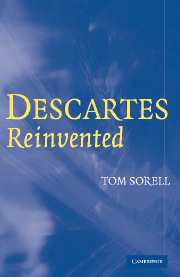Book contents
4 - Conscious Experience and the Mind
Published online by Cambridge University Press: 20 July 2009
Summary
The hallmark of innocent Cartesianism in the philosophy of mind is the claim that consciousness is irreducible. There have been intimations of this sort of view for a long time. In the early 1970s, Kripke was insisting that pain couldn't but be conscious and so couldn't be identical with C-fibre firing if, as he claimed it might, C-fibre firing could occur unconsciously. At about the same time, Nagel was pointing out that there is irreducibly something it is like to be in certain psychological states, and that this is what makes the mind–body problem intractable. Others, including John Searle, Colin McGinn, and Galen Strawson, have more recently said similar things. To the extent that these claims remain defensible, Cartesianism in the philosophy of mind is a live and respectable option.
I shall begin by outlining unreconstructed Cartesianism about the mind and shall try to extract from that the elements of the corresponding innocent Cartesianism. Turning to signs of that latter position in the current philosophy of mind, I shall consider briefly what Galen Strawson calls ‘naturalised Cartesianism’. Although I am sympathetic to Strawson's view, I do not want to endorse it in its entirety: There is a strong – and defensible – anti-naturalism in Descartes's philosophy of mind, and perhaps that deserves to be preserved in an innocent but latter-day Cartesian position. A similar thought is prompted by other writings from the twentieth-century philosophy of mind, notably McGinn on consciousness.
- Type
- Chapter
- Information
- Descartes Reinvented , pp. 85 - 112Publisher: Cambridge University PressPrint publication year: 2005



